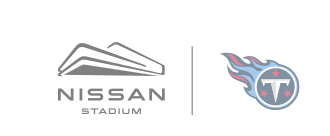A Summer of Rehab
Add us as a preferred source on Google
Get the AVNetwork Newsletter
A daily selection of features, industry news, and analysis for AV/IT professionals. Sign up below.
By submitting your information you agree to the Terms & Conditions and Privacy Policy and are aged 16 or over.
You are now subscribed
Your newsletter sign-up was successful
An account already exists for this email address, please log in.
Subscribe to our newsletter
Along with warm weather comes OS and platform upheaval.
- It's summer, so it must be time to rehab the computer lab. This annual process includes reformatting all the lab machines, installing OS and software upgrades, and generally making things ready for the fall semester's torture tests. This summer being no different, it was decided that the Mac lab machines would have to be fitted with OSX 10.7, otherwise known as Lion.
- Overall we'd had a good experience with v10.6, or Snow Leopard, and were loathe to change anything. We'd stuck with it all through the fall and spring semesters, initially because the software updates necessary for Lion were not yet widely available. Last summer we'd even gone to the trouble of buying some of the last available Snow Leopard machines, hoping to avoid the vast number of changes between 10.6 and 10.7, including Apple's efforts to make it more like an iOS product by hiding as much of Lion's geek side as possible. We dodged that bullet for as long as possible.
- But all good things come to an end, and so the new crop of lab computers -- we recycle half the herd for staff use every year -- comes with Lion installed, and therefore the other Snow Leopard-based lab machines will be cloned with Lion and other software upgrades. Of course, Apple has just announced that v10.8, Mountain Lion, will be available sometime in late July, so we will remain a full rev behind the current OS. Best to let the early adopters find the bugs, right? On the other hand, Lion is clearly aimed at a consumer audience, while we are busy teaching students who aspire to be professionals. We want them to experience the vagaries of working a computer to its limits, and to be able to dive into the guts of things far enough that they can at least fix minor issues without having to call a help line. Lion definitely impedes that process, although applying various preferences and the odd command line script mediates that situation to a degree.
- Unfortunately the OS "upgrade" is not the only change to our departmental infrastructure. We are one of the remaining entities which still use Apple's X-Serve and X-Raid for file sharing in the lab and to enforce various group policies on the lab's client machines. Given that both of these are not only not under warranty, but have in fact been completely discontinued and (as far as I can tell) purged from Apple's database of service parts. In other words, as far as Apple is concerned, "It's dead, Jim." Not even the drives in the X-Raid are salvageable, since they've been running hard 24/7 for the past two and a half years (somewhere in the vicinity of 150k hours) and are approaching the end of their average lifespan.
- The current plan is to migrate the data from this system onto an existing Windows Server 2008 R2 system for authentication and storage. This should work just fine, as a Win Server has handled authentication for several years and as, for the most part, storage is storage. The hitch is in Group Policies as they are currently applied to client lab machines. OSX Server 10.6 does a great job of locking down client machines in specific areas, so as to disallow clients changing various preferences, or getting in to other mischief. Windows Server addresses none of these functions that are specific to Mac clients, at least without the use of a third party product. Research continues on this front.
- Then there's the issue of the new Macbook Pro with the Retina display. I love the Retina display on the iPad 3 as much as anyone, and am regularly tempted to have an "accident" that forces me to replace my wife's creaky iPad 1 with one of the snazzy new models just so I can gaze deeply into its screen. It is difficult to argue that new Retina display is anything other than stunning.
- Having said that, the fact is that most projectors in our classrooms max out at 1280 x 800 pixels; some are even lower resolution. The Pro's Retina screen native resolution 2880 x 1800 for apps written for Retina, and displays as 1440 x 900 for apps not modified for Retina. It remains to be seen whether a 1280 resolution projector looks any better from a Retina-equipped computer than from a non-Retina machine. I'm guessing not. Unless the classroom display is fully HD, what's the point of the $400 option to Retina? Does it make a difference from ten feet or more away? Perhaps we'll know by fall.
Steve Cunningham is an assistant professor of practice at USC's Thorton School of Music.
Get the AVTechnology Newsletter
A daily selection of features, industry news, and analysis for AV/IT professionals. Sign up below.
TOPICS
